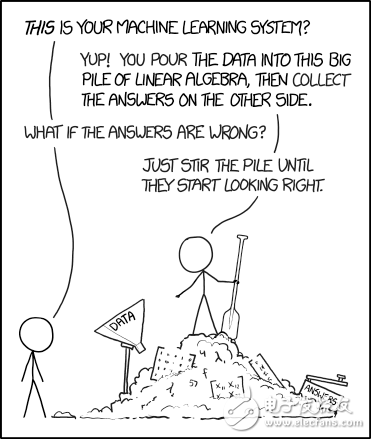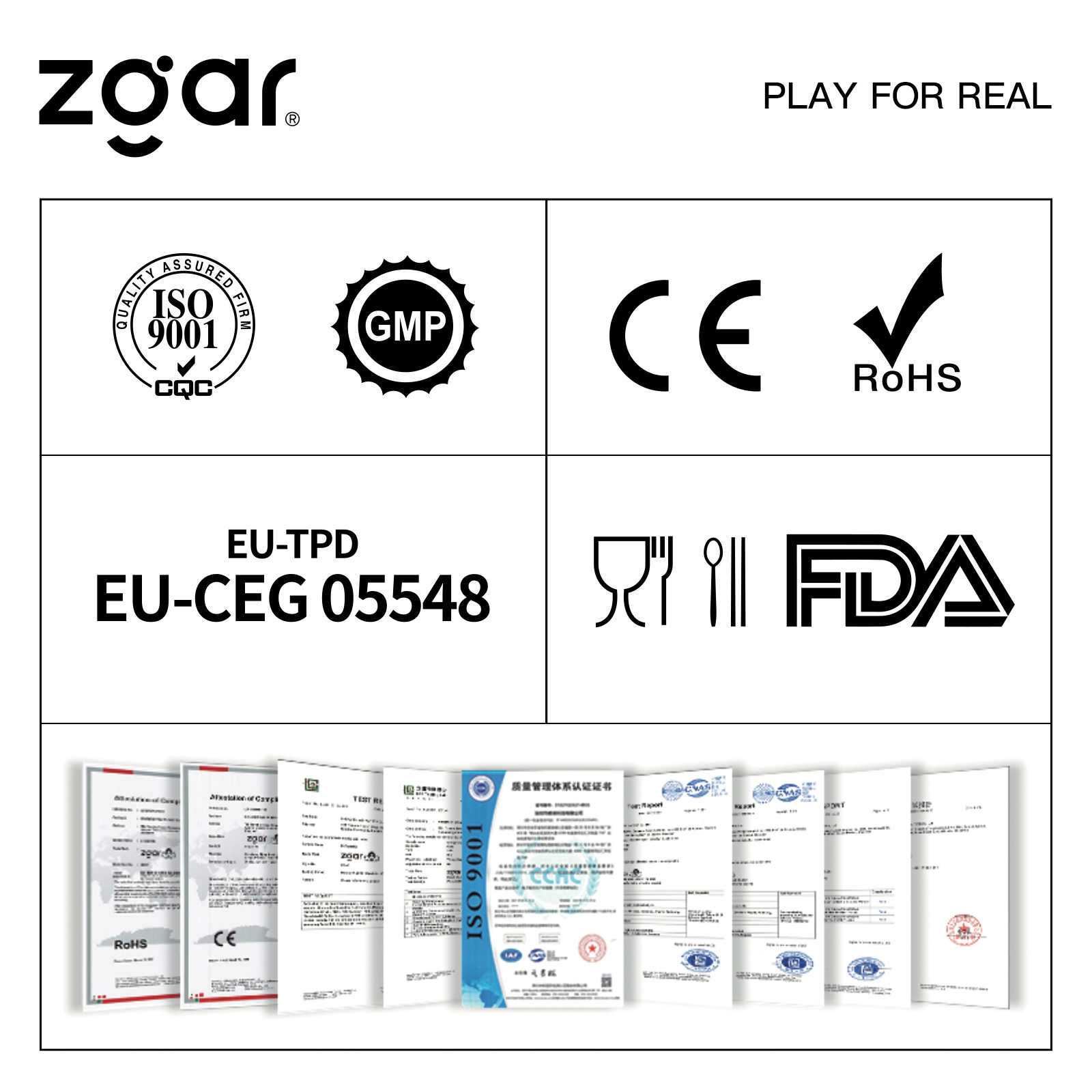When I introduce myself to a data scientist, I am often asked: "What is the difference between data science and machine learning?" or "Does this mean that you are researching artificial intelligence?" So I will answer this article.
There is a lot of overlap in these areas, but they are not an area: even if it is difficult to express in words, most experts in these fields can intuitively understand how a particular job is classified as data science, machine learning, or labor. Intelligent.
So in this article, I present a simplified definition of the differences between the three domains:
· Data science produces insight.
· Machine learning makes predictions.
· Artificial intelligence generation behavior.
Obviously, this is not a sufficient condition: not all things that fit this definition are part of the field. (The fortune teller makes predictions, but we won't say they are doing machine learning!) This is not a good way to determine someone's role or position (Is it a data scientist?).
But I think this definition is a very effective way to distinguish between these three kinds of work, and can avoid stupid when you talk about it.
Data science generates insightData science is very different from the other two, because its goal is also a human goal: to gain insight and understanding. Jeff Leek has a good definition of the types of insights that data science can achieve, including descriptive ("average client update odds of 70%") exploratory (different salespeople have different update rates) and causality.
Similarly, not all insights are eligible to become data science. The classic definition of data science is that it involves a combination of statistics, software engineering, and domain expertise. But we can use this definition to distinguish it from ML and AI. The main difference is that people always need to be involved in the data science cycle: understanding the results, understanding the general outline, or benefiting from the conclusions. So the arguments like "the chess algorithm uses data science to choose the next step" or "Google Map uses data science to recommend the driving direction" are meaningless.
Therefore, the definition of data science emphasizes:
·Statistical inference
·data visualization
·experimental design
·Domain knowledge
·communication
Data scientists can use some very simple tools: they can get a percentage and draw a line graph based on the results of the SQL query. You can also use very complex methods: they can work with a decentralized data warehouse to analyze trillions of records to develop cutting-edge statistical techniques and build interactive visualizations. But no matter what they use, the purpose is to better understand their data.
Machine learning to make predictionsI think machine learning belongs to the field of prediction: "given instance X with a specific feature, speculative Y". These predictions may be about the future (predicting whether the patient will enter sepsis) or about predicting characteristics that are less obvious to the computer (predicting whether the image will have birds). Almost all Kaggle competitions can be considered machine learning related questions: they provide some training data and then see if contestants can make accurate predictions of new examples.
There is a lot of overlap between data science and machine learning. For example, you can use logistic regression to gain insights about relationships (the richer people are more likely to buy our products, so we should change our marketing strategy) and make predictions (the user has a 53% chance of buying) Our products, so we should sell them more to them).
Models such as random forests are less interpretable, so they are more suitable for "machine learning" descriptions, while deep learning and other methods are difficult to explain. If your goal is to get insights, not to make predictions, then this may hinder you. Therefore, we can imagine a “spectrum†of data science and machine learning. There are more interpretable models that tend to be in data science, and more are “black box†models in machine learning.

Most practitioners are able to switch back and forth between the two areas very comfortably. I use machine learning and data learning at the same time: I can install a model on the Stack Overflow traffic data to determine which users might be looking for a job (machine learning), then build summaries and visualizations to verify how the model works. (Data Science). This is an important method to discover model defects and an important method to solve algorithm bias. This is one of the reasons why data scientists are often responsible for developing machine learning components for their products.
Artificial intelligence generation behaviorArtificial intelligence is by far the oldest and most well-known of the three logos, so defining it is the most challenging. The term has been hyped up, thanks to researchers, journalists, and startups seeking money or attention.
· When you prepare funds, this is artificial intelligence
· When you are hiring, it is ML
· When you are executing, this is linear regression
· When you debug, it is printf()
What frustrates me is that this has caused a strong rebound, because it means that some work that should be called artificial intelligence has not been described accordingly. Some researchers even complain about the impact of artificial intelligence: "Artificial intelligence is something we can't do now." So what can we describe with AI?
One common feature in the definition of "artificial intelligence" is the execution or recommendation of an autonomous agent. Some systems that I think should be described as AI include:
· Rules of the game (dark blue, AlphaGo)
·Robot and control theory (motion planning, walking biped robot)
·Optimization (Google Maps selection route)
· Natural language processing (bots2)
·Strengthen learning
Again, we can see that it has a lot of overlap with other areas. Deep learning spans both ML and AI, which is very interesting. A typical use case is to train the data and then generate predictions, but it has been a huge success in game algorithms like AlphaGo. (This is different from earlier game systems, such as Deep Blue, which is more focused on exploring and optimizing future solution spaces).
But there are also differences. If I analyze some sales data and find that customers in a particular industry are more updated than customers in other industries, then the output is some numbers and graphics, not the specified operation.
Please don't describe those who train the algorithm as "using the power of artificial intelligence."
- Dave Gershgorn (@davegershgorn) September 18, 2017.
The distinction between artificial intelligence and machine learning is more subtle. Historically, ML is often considered a branch of artificial intelligence (especially computer vision, which is actually a typical artificial intelligence problem). But I think that the ML field is largely "interrupted" by artificial intelligence, in part because of the bounce described above: Most people who are engaged in predictive problems don't like to describe themselves as artificial intelligence researchers. (It can help many ML achieve major breakthroughs through statistics, and this data does not have that much impact in other areas of artificial intelligence). This means that if you can use "Y predict X" to describe a problem, then I suggest you avoid using the word AI.
Case study: How do you use these three together?Suppose we are building an autonomous car and are studying the specifics of how to park automatically at the stop sign. Then we will need to use the skills in these three areas.
Machine learning: The car must be able to recognize the stop sign through the camera. We built a dataset that contained photos of millions of streetside objects and trained an algorithm to predict which stops.
Artificial intelligence: Once our car recognizes the stop sign, it is necessary to decide when to perform the brake action. Too early and too late is very dangerous, and we need it to be able to cope with different road conditions (for example, it must be aware that the brakes do not decelerate quickly on slippery roads), which is a matter of control theory.
Data Science: In the street test, we found that the vehicle performance was not good enough, because some parking signs were always skipped. By analyzing the street test data, we came to the conclusion that it is easier to miss the stop sign before sunrise and after sunset. This made us realize that most of our training data only contains images during the day, so we constructed a better data set that included nighttime images and then returned to the machine learning step for research testing.
The “robot†we often refer to refers to a system that interprets natural language and then responds in kind. This can be distinguished from text mining with the goal of extracting insights (data science) or text classifications with the goal of classifying documents (machine learning).
ZGAR MINI
ZGAR electronic cigarette uses high-tech R&D, food grade disposable pod device and high-quality raw material. All package designs are Original IP. Our designer team is from Hong Kong. We have very high requirements for product quality, flavors taste and packaging design. The E-liquid is imported, materials are food grade, and assembly plant is medical-grade dust-free workshops.
From production to packaging, the whole system of tracking, efficient and orderly process, achieving daily efficient output. We pay attention to the details of each process control. The first class dust-free production workshop has passed the GMP food and drug production standard certification, ensuring quality and safety. We choose the products with a traceability system, which can not only effectively track and trace all kinds of data, but also ensure good product quality.
We offer best price, high quality Vape Device, E-Cigarette Vape Pen, Disposable Device Vape,Vape Pen Atomizer, Electronic cigarette to all over the world.
Much Better Vaping Experience!


E-Cigarette Vape Pen,Disposable Device Vape,Vape Pen Atomizer,Latest Disposable E-Cigarette OEM vape pen,OEM electronic cigarette,ZGAR Mini
ZGAR INTERNATIONAL(HK)CO., LIMITED , https://www.sze-cigarette.com